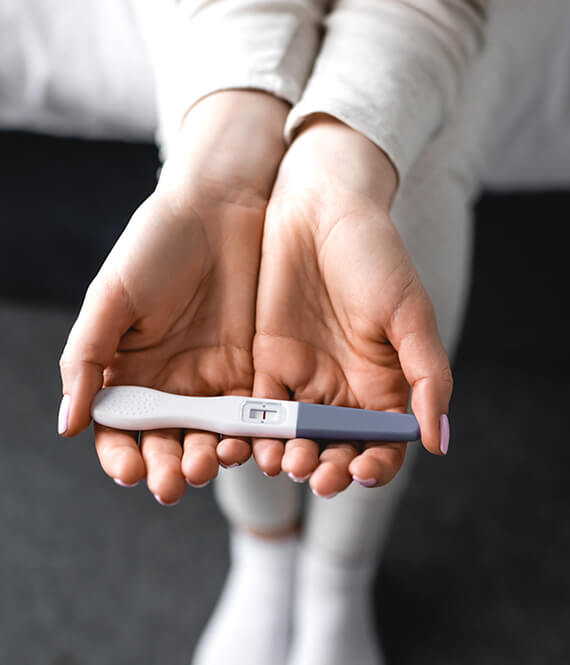
How Menopause Can Impact Digestive Health + 5 Doctor-Approved Ways To Feel Better
We recommend helpful products in our articles. Read our full disclosure here. The content on this website is not intended to be a substitute for professional advice, diagnosis, or treatment.
While many of us are aware of the common symptoms of Menopause, like hot flashes, mood swings, night sweats, etc., Very few of us know about its impact on digestive health.
“Around 7 out of 10 women came to me complaining about the various digestive issues they have been facing during this phase, and nearly all of them weren’t aware of the fact that digestive issues, is in fact, a symptom of menopause,” says Doctor Karen Pike.
The hormonal changes that occur during menopause can affect digestion in several ways, leading to symptoms such as bloating, gas, constipation, and diarrhea.
In this article, let us explore the relationship between menopause and digestive health and discuss some strategies that can help you manage these symptoms during this phase.
Hormone Changes and Digestive Health
During menopause, your body experiences a significant decline in estrogen and progesterone, two key productive hormones.
Both of these hormones have direct or indirect impacts on the digestive system.
Estrogen has a crucial role to play in maintaining the integrity of the gastrointestinal tract and supporting its functions.
It promotes the growth of bacteria in the gut, which helps maintain a healthy balance of gut flora.
When estrogen levels decline during menopause, these functions get interrupted, which leads to changes in bowel movements, constipation, and diarrhea.
Progesterone, on the other hand, has a relaxing effect on the smooth muscles of the gastrointestinal tract. This hormone helps in preventing spasms in the intestinal muscles, promoting regular and comfortable bowel movements.
So when these hormones drop during menopause, your digestion tends to lose its rhythm.
Your Digestive Red Flags
These are some of the possible digestive issues you might encounter during this period:
- Feeling Inflated: If you think that you are the only one who is feeling like a balloon during this phase, trust me, you are not alone.
Many women report bloating during menopause, and this happens because of the changes in food processing, which is, again, interrupted by low levels of estrogen and progesterone.
- Unwanted Gas: You might have noticed that you’re producing more gas than usual.
This could be a result of changes in your gut’s bacterial balance, which helps with digestion.
- Slow Transit: The hormonal change can delay digestion, leading to constipation, which is pretty annoying when you’re already dealing with mood swings and hot flashes.
This connection between menopause and constipation can be particularly challenging for women during this time, as they may already be dealing with a range of other symptoms, too.
Managing the symptoms
Managing the symptoms does not necessarily mean that you won’t have to go through any symptoms at all.
It simply means that you would be able to better cope with them.
Here’s how you can do it.
1. Tweak your diet
Regain your balance with phytoestrogens by consuming flax, sesame seeds, fruits, dates, veggies, etc.
Include whole grains, sweet potatoes, avocados, bananas, pumpkin seeds, etc., as they are rich sources of magnesium.
Also, eating fiber-rich products like brown bread, oatmeal, etc is recommended.
2. Chew Chew Chew
If you include some fiber-rich, magnesium-rich products in your diet, you might get rid of the stomach issues.
Unfortunately, NO, not unless you chew your food.
Take time to chew the food you are eating and be mindful of what you eat because what you eat is as important as how you eat.
3. Stay Active and Hydrated
Staying physically active has more wonders than you can think of, and it massively contributes to easing your digestive issues.
Ensure that you indulge yourself in 30 minutes of moderate exercise every day.
Also, drink plenty of water; you might think that means more visits to the loo, and that may happen, but staying hydrated helps alleviate symptoms of menopause.
4. Stress Less
Among all that estrogen has been doing for you, it also helps regulate cortisol.
Cortisol plays an important role in the body’s response to stress, helping to regulate metabolism, immune response, and blood pressure, which is why a decrease in estrogen levels makes you stress more about the stress that you earlier didn’t stress about.
To avoid this, practice meditation or mindfulness techniques like yoga.
It helps clear your mind and keeps you focused.
5. Go Natural
You can even go for natural remedies like drinking ginger tea or peppermint tea.
Let me give you a brief idea of how these can help you with digestion.
- Ginger tea: Ginger is known for its anti-inflammatory properties, and ginger tea can help soothe digestive issues like bloating and nausea.
- Chamomile Tea: Chamomile is often recommended for its calming effects, which can help with mood swings and anxiety, which are common during menopause, and can also aid in digestion and promote relaxation.
- Peppermint Tea: Peppermint tea is a great choice for relieving digestive issues such as gas and bloating.
It can also help with nausea and soothe an upset stomach.
Conclusion
Menopause and digestive health may seem like unlikely parameters, but they tend to have a significant impact on each other.
While menopause does affect digestive health, these changes are not necessarily inevitable or permanent.
Adopting a healthy lifestyle, including a balanced diet, regular exercise, stress management, and appropriate medical care, can help alleviate symptoms to a greater extent.
Also, if any of the menopause symptoms are interfering with the quality of life or your usual routine, you must pay a visit to your doctor.
Though menopause symptoms are common, the intensity of these symptoms varies from woman to woman.
"We love to research problems, examine studies, analyze solutions, and share with you ideas that make life healthier. You can learn about us and our editorial standards here. Have suggestions or feedback to share? Send us a message!."













Leave a Comment